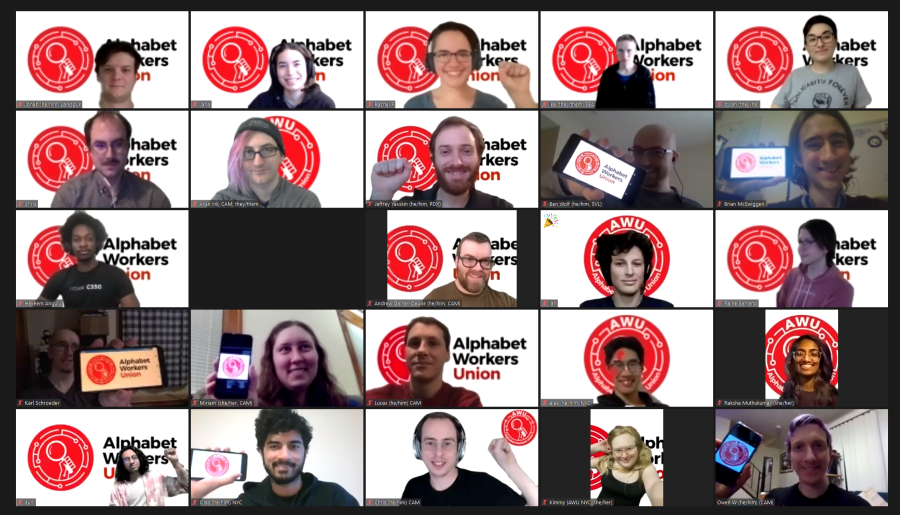When January comes around, it’s time to take stock and make resolutions. Time to look back at what has happened over the past few months, what trends there have been, what aspirations. Time to start making resolutions for the coming year and drawing up a to-do list of ways to build what you hope will be a brighter future.
2020, a year of hysteria
We’re not going to go back over the year that brought us Covid-19. The pandemic affected the daily lives and habits of the entire world. The boundaries between home and work were whittled down to nothing, companies pushed digital to the extreme, and made click & collect and zoom party experts of us all. We had no choice: 2020 was a year of digital hysteria. Never has so much time been spent on Netflix, never have people sent so many messages, shared so many photos, broadcast so much data. Western societies have never been more connected, dependent on smartphones, screens and data. And the images beamed to us from Chinese experiments clearly announce that the journey to digitalisation is far from over.

There are some positives, and some not so positives about the hurtling momentum of digitalisation. Digital tools have allowed us to keep in touch with loved ones or colleagues during periods of isolation. They have enabled some people to keep working from home and maintain a stable income. They have also shown their increasingly important role in calling out injustice and raising hopes. Let’s not forget that after 2019’s #MeToo movement, 2020 was the year of #BlackLivesMatter, an initiative whose size and thrust would not have been possible without digital tools, cameras, social media channels and their ability to amplify voices [1]. But no clear success has been pinpointed as a result of this movement.

And 2020 was also an unfortunate year for digital tools. Social media – with Facebook in the lead – tightened its grip, and attempts to regulate the content and advertising monster continued to fail, clearing the path for extremism and manipulation. The immediacy of social media has continued to shape the landscape of other media as well, sometimes casting aside the reason and perspective that is required for life in a peaceful society. The rhetoric of technological solutionism is still relevant – including in politics [2] – despite the failures of the Smartcity models in Toronto and Songdo. And finally, the ecological footprint of digital tools in 2020 is larger than ever, while the climate issue is becoming more and more urgent.
Like other years of hysteria, 2020 forced us to swing back and forth between crises and hopes from month to month, finally leaving us with a complex takeaway: we won’t ever look back on this digital society, it will be with us for a long time to come; but right now people have no choice but to learn how it is abused, so that everyone – in their own way – can fight against it.
2021, a year of responsibility
Despite all that, 2021 didn’t start off too badly. The influx of news in recent weeks has been dominated by the pandemic and American politics. But in some speeches, we are starting to hear about the first actions that are going to be taken to fight the ambient hysteria.

These actions are both legal and political. In December, 46 US states filed a complaint against Facebook for its monopoly position [3]. The European Commission seems to want to toughen up on GAFA tax policies [4]. At the start of the year, Google workers founded the first union in the company’s history [5]. And finally, for the first time in four years, Facebook and Twitter suspended Donald Trump’s accounts following the events at the U.S. Capitol on 6 January.
The signs do point towards a responsible digital year for 2021. Responsible in terms of the impact of digital on our daily lives, our opinions and our relationships with others. Responsible in terms of the role these tools play in our lives. But the year will only be truly responsible if all digital professionals – and they are growing in number – also take action to promote digital positivity.
5 principles for digital positivity
Why talk about this issue when we’re a digital design agency? Being a stakeholder in the digital ecosystem now means being either an instrument for hysteria or a provider of solutions. Each agency, each digital player in 2021 will have to choose how it wants to create this positive digital world that we all want.
We know the impact of digital on our society and the world around us. As we develop digital tools, at Plan.Net we are committed to respecting 5 principles for digital positivity:
- Stop thinking in terms of users – faceless personas who have come to dominate our methodologies – but rather in terms of human beings who are exposed to and impacted, sometimes indirectly, by the tools we design.
- Consider and act upon the ecological impact of what we do and how we do it, and reduce that impact as soon as possible.
- Design an open, accessible and interoperable digital world, which considers the special ways in which each person uses it, and leaves space for freeware and offline alternatives for people who want them.
- Stop thinking that digital is the only solution to every problem and find ways of offering tools that fulfill a purpose and are sometimes simpler and less harmful to the environment.
- Never stop thinking positively about digital tools – in line with the desire to disseminate and build as professional internet pioneers – while remaining aware of its limits and harmful effects.
It is 2021, and we can still be proud that we work in a digital agency and make our – modest – contribution to building a fairer, more inclusive and truly useful digital world.
That’s what being a positive digital agency is all about.
Translated from French by Ruth Simpson
This page is available in FR



